IFS Officer’s Brilliant Idea Ensures Roadside Plantations Have a 100% Success Rate
Close to 800 trees, varying between 10-15 feet, have been planted along NH 44, using Tripura-based IFS officer Prasada Rao’s low-cost method to increase the green cover.
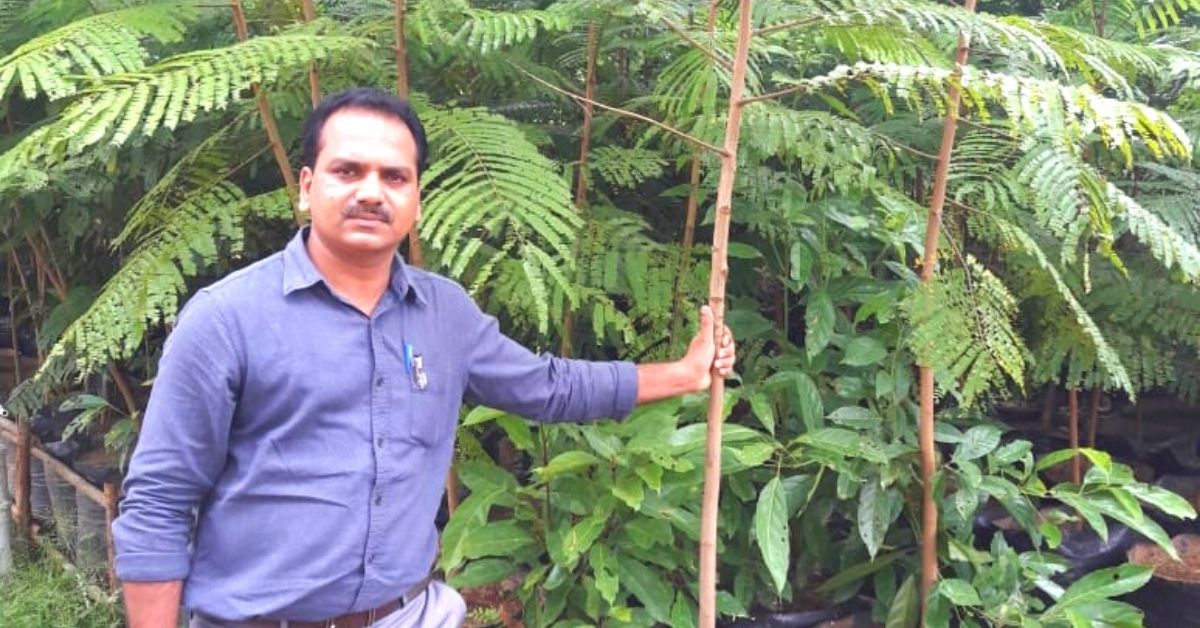
“Forest on wheels is a technique to plant tall trees in poly bags and create green belts overnight,” begins Indian Forest Services (IFS) officer Prasada Rao, who made headlines for developing innovative and eco-friendly ways to generate livelihoods among tribal communities in Mizoram in 2020. He trained the locals to make value-added products of indigenous bamboo such as bottles and brooms, which also happened to be alternatives to plastic.
Rao, who is currently posted as Managing Director, Tripura Rehabilitation Plantation Corporation Limited, is back again with another pro-environment innovation. After four years of rigorous research and work, he finally revealed his movable afforestation method called ‘Treebanks’ on social media.
Tree Banks- a technique of raising pole size trees in poly bags to create green belts over night ,is developed by me in Tripura and adopted to raise road side plantations with 100% success rate without plant guards. I am proud of my initiative. For details contact on 9402307944 pic.twitter.com/TomQ6zGO0C
— Prasada Rao IFS (@IfsRao) June 5, 2021
With a postgraduate degree in Agricultural Studies, he has developed a low-cost way to increase the green cover in public areas and national highways without having to invest heavily in plant guards.
“Every time we plant a tree, the forest department spends close to Rs 2,000 to install a plant guard around it to prevent any man-made or animal-made damages. While it is a necessary expenditure it can be avoided with an alternative and public money can be saved. We can plant more trees with the saved money,” Rao tells The Better India.
The 2010-batch officer began working in 2016 when he was posted as the Divisional Forest Officer (DFO) in Teliamura of Khowai district and continued his research through all his transfers. In 2018, he initiated a pilot project along National Highway 44 with other forest officials.
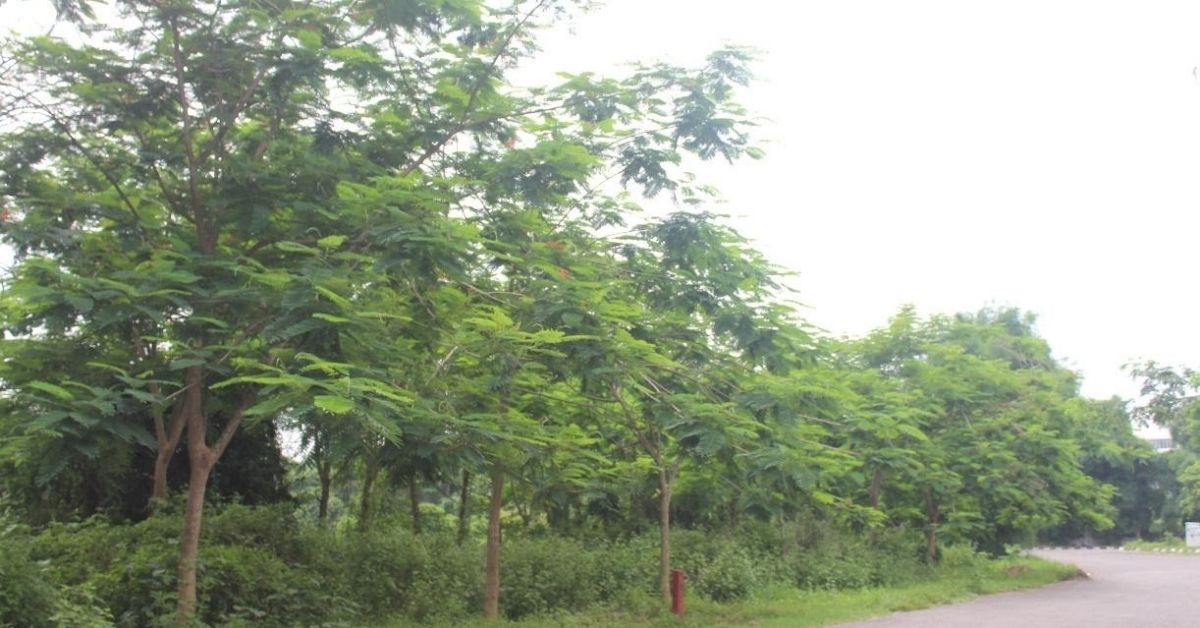
Jai Krishnan, DFO in Unakoti district, Tripura, who worked with Rao in 2018 to plant trees, says this technique will also help establish greenery on barren, degraded or rocky lands and in those areas that have lost greenery to cyclones, floods, etc.
“I planted 15 species on a 5 km stretch of road based on the topography. Within a year, the trees started flowering and the jackfruit tree was fruiting. We saved on time and cost and by developing more nurseries, we can save on transportation costs as well,” adds Krishnan.
Today, close to 800 trees varying between 10-15 feet have been planted along NH 44.
What are Treebanks?
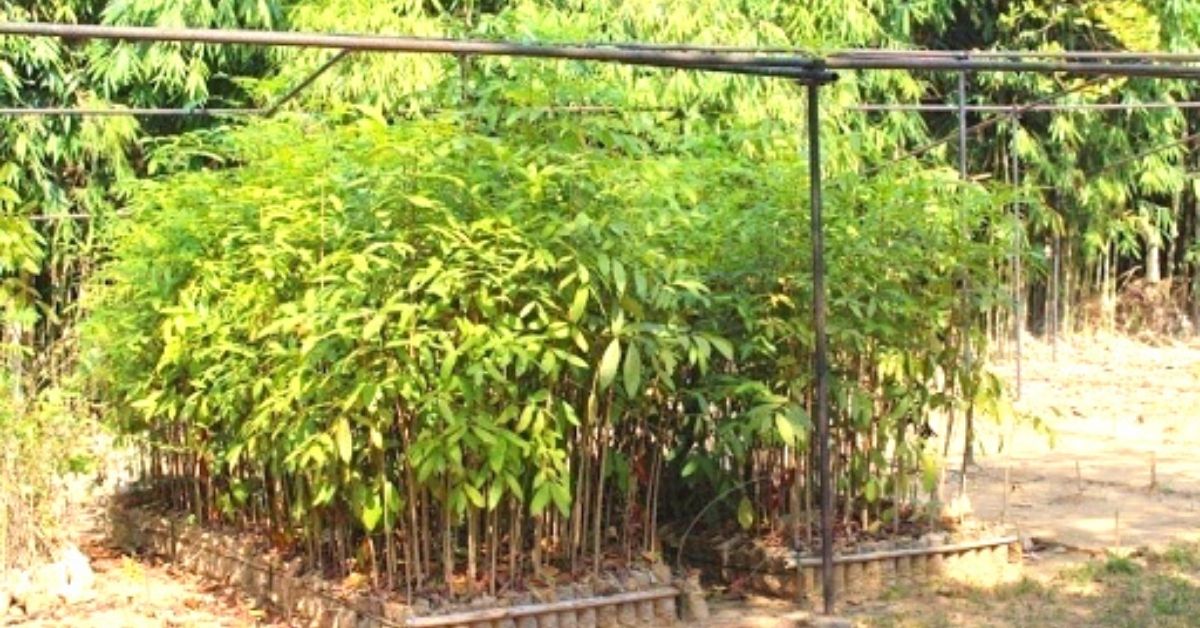
Treebanks are like nurseries but they raise trees with a minimum height of 12 feet and collar girth of around 20 cm inside a plant container measuring about 70cm x 77.5 cm, over a span of two years.
“In two years the trees will be tall and more sturdy, thus eliminating the need for plant guards. Providing 4 cubic feet of fertile soil with the tree will ensure better protection on acid and alkaline soils. In the traditional method, the tender seedlings are prone to droughts and high wind speeds and thus it requires regular maintenance, which means additional cost,” says Rao.
To test his theories, Rao conducted an experiment to analyse the behaviour patterns of roots and tall saplings. He studied the Mahogany tree with a height of 15 feet and collar girth of 22 cm that can withstand the strong wind pressure.
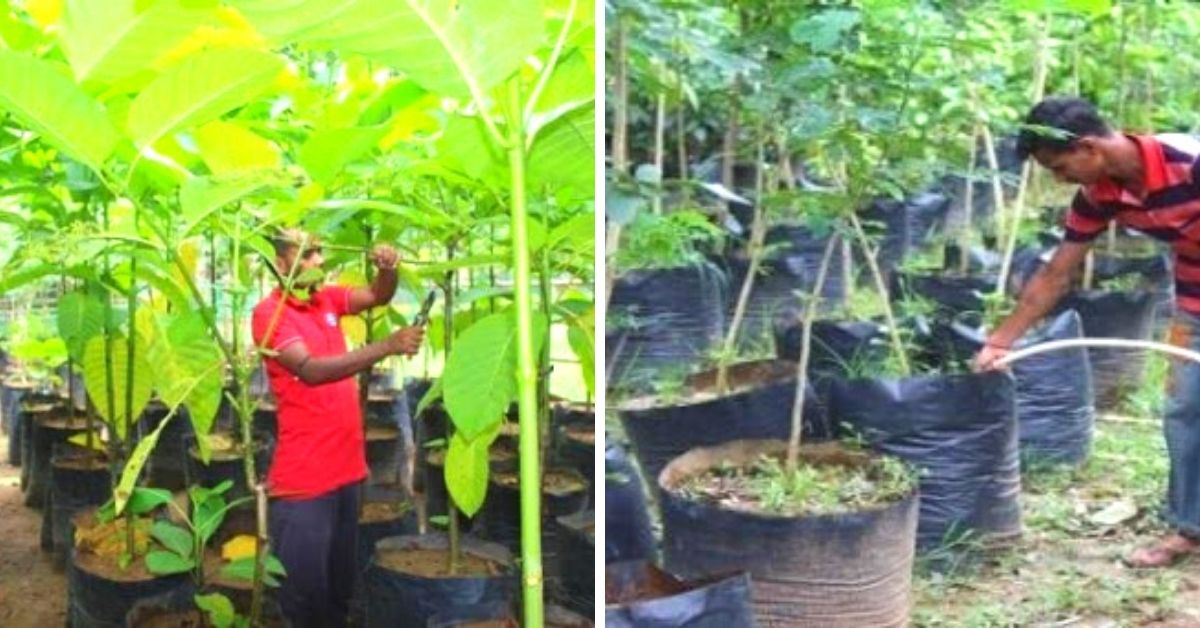
He measured the taproot, which had a depth of about 45 cm from the surface of the soil and its majority of fibrous roots were spread within the radius of 25 cm horizontally. Using these measurements, Rao designed a polybag in which trees of this stature can be developed that allow the root system to grow both vertically and horizontally.
Next, Rao filled the bag with soil, manure, urea, single super phosphate and potash and transplanted a one-year-old seedling from a nearby nursery into the bag. He then supported the seedling with a bamboo stake.
Rao followed the same procedure with more polybags and placed all of them in a row with a distance of one meter between each tree. Two years later, the seedlings had attained a height of 12 feet.
“I irrigated them twice a week throughout the year, except during the monsoons, with weeding and pruning done whenever required. Due to this, the nutrients grew three times faster than a conventional plant. The polybag is strong enough to last for a minimum of four years, despite exposing it directly to sunlight and rains,” says Rao.
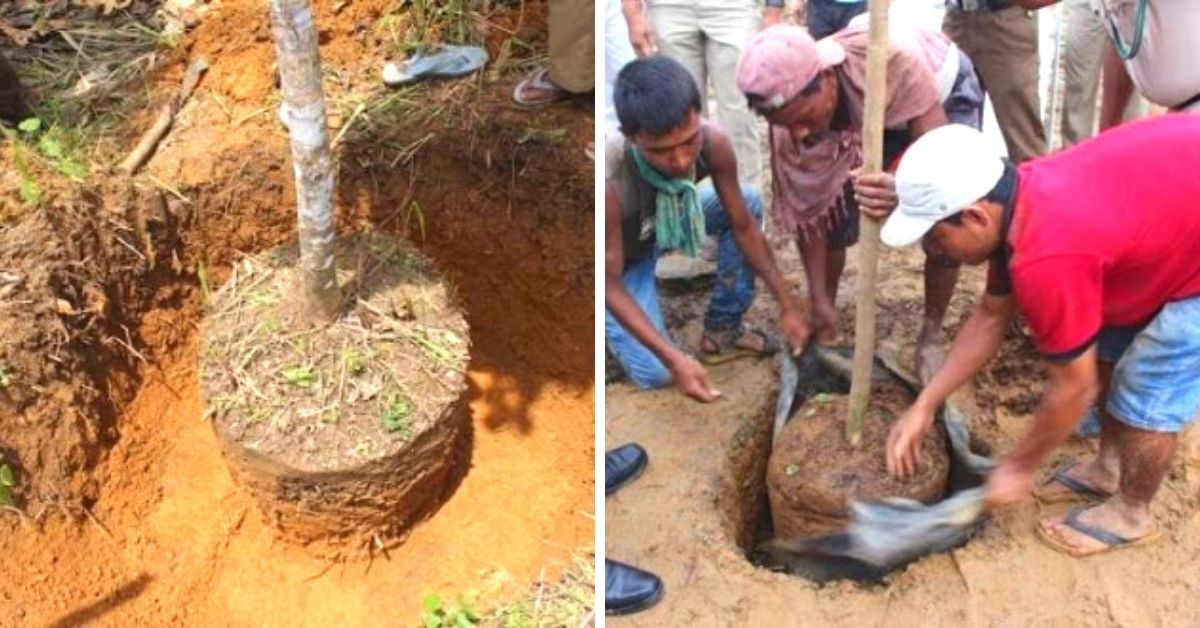
Rao used fast-growing species such as Gulmohar, Raintree, Peltophorum, Mahogany, Kadam. Once the trees were ready, the team dug pits of 80cmx80cmx80cm on the roadside. The bottom layer of the polybag is removed by the blade at the margin of the pit and the tree is planted. The remaining polybag is cut and pulled out.
The entire exercise cost around Rs 400 (per plant), which is cheaper than the previous method, and the survival rate is 100%. Rao says for future endeavours, the polybag can be replaced with eco-friendly alternatives like coal treated jute bags.
Edited by Yoshita Rao
If you found our stories insightful, informative, or even just enjoyable, we invite you to consider making a voluntary payment to support the work we do at The Better India. Your contribution helps us continue producing quality content that educates, inspires, and drives positive change.
Choose one of the payment options below for your contribution-
By paying for the stories you value, you directly contribute to sustaining our efforts focused on making a difference in the world. Together, let’s ensure that impactful stories continue to be told and shared, enriching lives and communities alike.
Thank you for your support. Here are some frequently asked questions you might find helpful to know why you are contributing?


This story made me
-
97
-
121
-
89
-
167













